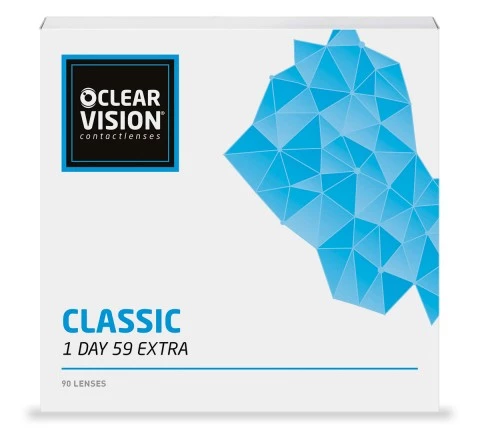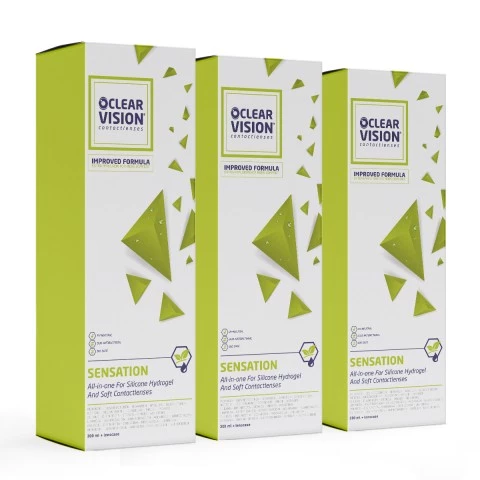
Can I keep contact lenses in water?
It's Saturday evening and you need to store your lenses, but you don't have your lens solution with you and the stores are closed. The only thing near is water. But can you simply store your contact lenses in water?
The dangers of storing Contact Lenses in (tap) water
Contact lenses are a great way to improve your vision without having to wear glasses. However, it's important to take proper care of them to avoid any potential dangers. One of the biggest dangers is storing your contact lenses in tap water. While it may seem like a convenient option, tap water can actually be full of harmful bacteria and other microorganisms that can cause serious eye infections. This is because tap water is not sterile and can contain a variety of contaminants that can harm your eyes.
In addition, travelers have a higher risk of eye infections due to the water quality outside of developed countries. It's important to always use sterile solutions when cleaning and storing your contact lenses, especially when traveling. This will help to reduce the risk of infection and keep your eyes healthy.
To avoid any potential dangers, it's best to use a contact lens solution that is specifically designed for cleaning and storing your lenses. This will help to ensure that your lenses are properly cleaned and disinfected, reducing the risk of infection. Additionally, it's important to always wash your hands before handling your contact lenses to avoid transferring any bacteria or other contaminants to your eyes.
What if you accidentally already stored your contact lenses in water?
Have you ever accidentally stored your contact lenses in water? Don't worry, you're not alone. It's a common mistake that many people make. However, it's important to know that storing your contact lenses in water can lead to serious eye infections. So, what should you do if you've already made this mistake? First, remove the lenses from the water and rinse them thoroughly with contact lens solution. Then, disinfect them with a fresh solution and let them soak for at least six hours before wearing them again. It's also important to replace the lenses as soon as possible to avoid any further risk of infection.
What should you do if you forgot your lens solution?
Forgetting your lens solution can be a real pain in the eye. Whether you're on vacation or just running errands, it's important to have a backup plan in case you forget your solution.
First, don't panic. There are a few options available to you. One option is to use saline solution as a temporary substitute. While it won't clean your lenses as thoroughly as your regular solution, it will help to rinse away any debris or irritants. Another option is to use hydrogen peroxide solution, which can be found at most drugstores. However, be sure to follow the instructions carefully and allow the solution to neutralize before putting your lenses back in.
If you don't have access to either of these options, you can try using distilled water to rinse your lenses. However, this should only be done in an emergency as tap water can contain harmful bacteria and other contaminants. It's also important to note that using anything other than your regular solution can increase your risk of eye infections and other complications.
Conclusion
Storing contact lenses in tap water can lead to serious eye infections due to the presence of harmful bacteria and other microorganisms. It's important to use a sterile contact lens solution and wash hands before handling lenses to avoid transferring bacteria or other contaminants to the eyes. Travelers should be especially cautious and use sterile solutions when traveling outside of developed countries. If contact lenses are accidentally stored in water, they should be removed, rinsed with contact lens solution, disinfected with fresh solution, and soaked for at least six hours before wearing them again.
Forgetting lens solution can be a hassle, but there are alternative options available. Saline solution can be used as a temporary substitute, while hydrogen peroxide solution can be found at most drugstores. However, it's important to follow instructions carefully and allow the solution to neutralize before putting lenses back in. Using distilled water should only be done in an emergency as tap water can contain harmful bacteria and other contaminants.
It's recommended to pack extra solution when traveling and take extra precautions to protect eyes from potential hazards. There are also products available to help with contact lens care, such as travel-sized solutions and lens cases. Travelers should be aware of the higher risk of eye infections due to water quality outside of developed countries and use sterile solutions to clean and store lenses. By taking these precautions, people can enjoy clear vision without putting their eyes at risk.

Daily lenses
Take a look at our Daily lenses, perfectly comfortable every day without having the trouble of changing and cleaning your lenses every day.

 EU
EU 








